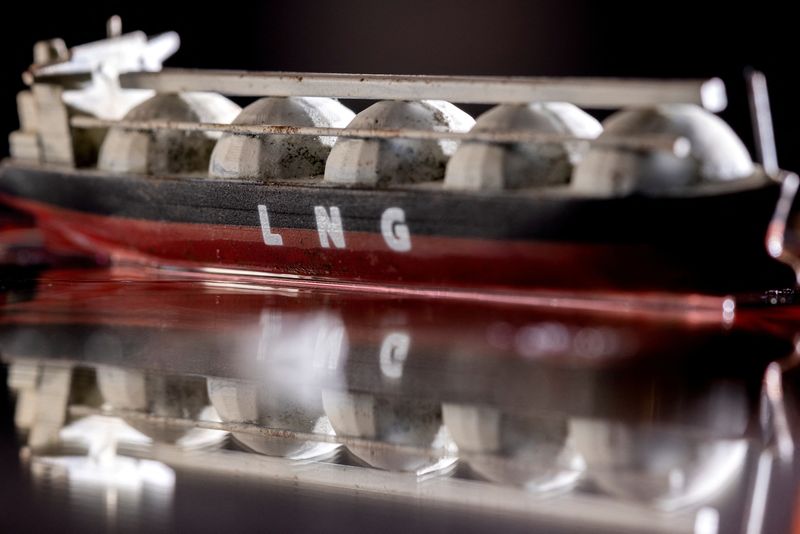By Sonali Paul
MELBOURNE – Australia’s competition watchdog on Monday warned the country’s east coast faces a gas supply shortfall in 2023, prompting the government to consider whether to impose curbs on exports of liquefied natural gas (LNG) for the first time.
The export controls can be triggered by using the Australian Domestic Gas Supply Mechanism (ADGSM), set up in 2017 and originally due to expire in 2023. On Monday, Resources Minister Madeleine King extended the mechanism, which has never been triggered, to 2030.
HOW DOES THE ADGSM WORK?
The ADGSM allows the government to restrict exports of LNG from three east coast plants to ensure there is enough gas for domestic use if a shortfall is predicted for the coming year.
The government first notifies its intention to determine whether the following year will be a shortfall year. It then makes an assessment whether there will be a shortfall based on advice from the Australian Competition and Consumer Commission (ACCC), the Australian Energy Market Operator (AEMO), gas producers, industrial gas consumers and government sources.
An LNG exporter will face export curbs if it is in a ‘net deficit’ position, where it is using and exporting more gas than it produces plus gas it has contracted from third parties specifically to supply the LNG project.
The minister allocates the export curbs proportionally across any LNG projects that are in net deficit. King said she would determine whether to pull the trigger by early October.
WHAT IS THE HEADS OF AGREEMENT?
The ADGSM works alongside the ‘Heads of Agreement’ with the three east coast LNG exporters. Under this, the exporters have committed to offer any uncontracted gas volumes to the domestic market on internationally competitive terms, before offering it to the international market, to help avert any shortfalls.
The competition commission raised concern on Monday that some LNG exporters are not sticking to the spirit of the pact, due to expire in 2023.
“We are concerned that domestic gas users don’t always have reasonable notice of these offers, and that LNG exporters do not make counter-offers to bids, which could indicate they are not seriously engaging in the domestic market,” ACCC Chair Gina Cass-Gottlieb said in a statement.
The government plans to negotiate a new heads of agreement, King said.
WHICH EXPORTERS ARE AFFECTED BY THE ADGSM?
The firms affected are:
Australia Pacific LNG (APLNG), 9 million tonnes per annum (mtpa) capacity, owned by Origin Energy, ConocoPhillips and Sinopec;
Queensland Curtis LNG (QCLNG), 8.5 mtpa, owned by Shell Plc, CNOOC and Tokyo Gas;
and Gladstone LNG (GLNG), 7.8 mtpa, owned by Santos Ltd, TotalEnergies SA, Korea Gas Corp (KOGAS) and Malaysia’s Petronas.
GLNG MOST AT RISK
GLNG, operated by Santos, is the plant that faces the biggest export curbs under the existing ADGSM as it takes more gas from the domestic market than it contributes, as the project does not produce enough gas from its fields to meet its export contracts.
Santos said it opposes the extension of the ADGSM to 2030 as the mechanism “currently targets Santos and our GLNG partners”.
Extending the ADGSM “will seriously damage Australia’s reputation with investors and customers in Asia, and with Asian countries with which Australia has free trade agreements”, the company said in its submission to the government’s ADGSM review.
The government’s ADGSM overhaul could spread the burden of filling supply gaps to all three plants, Credit Suisse analyst Saul Kavonic said.
GOVERNMENT GOALS
Resources Minister King on Monday said she wants to ensure the government can respond swiftly to short-term supply issues, rather than just responding to shortfalls forecast a year in advance.
King, who is also considering a price trigger, said she wants to ensure there is enough gas to support manufacturing and energy security while keeping a lid on local gas prices.
She also aims to maintain Australia’s position as a leading energy exporter and “respect the trust” that international investors and trading partners have shown in its resources and energy sectors.
(Reporting by Sonali Paul; Editing by Kenneth Maxwell)
